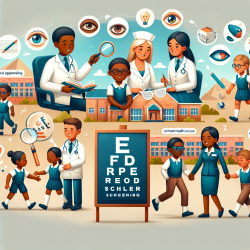Introduction
As a speech-language pathologist, the quest for improving child outcomes is a constant journey. The intersection of various disciplines can often provide insights that are both unexpected and invaluable. One such intersection is between speech-language pathology and the findings from the Breastfeeding and Feminism International Conference 2016. The research presented at this conference offers significant insights that can be applied to enhance the outcomes of speech-language therapy, particularly in the context of online therapy services like those provided by TinyEYE.
Key Insights from the Research
The research presented at the conference highlights several key areas that can be leveraged to improve child outcomes:
- Socioeconomic Factors: The research underscores the impact of socioeconomic status on breastfeeding rates and, consequently, on child development. This insight can be pivotal for speech-language pathologists in understanding the broader context of a child's environment and tailoring interventions accordingly.
- Food Security and Nutrition: The conference highlighted the importance of food security and optimal nutrition in early childhood development. Speech-language pathologists can use this information to advocate for nutritional assessments as part of their therapy plans, ensuring that children receive the necessary nutrients for optimal brain development.
- Maternal Support Systems: The role of maternal support systems in successful breastfeeding was emphasized. This can be translated into speech-language therapy by encouraging family involvement and support, which has been shown to improve therapy outcomes.
Implementing Research Outcomes in Practice
For practitioners looking to implement these research findings, the following strategies can be considered:
- Holistic Assessment: Incorporate questions about a child's nutritional status and family support systems into initial assessments to better understand the child's environment.
- Collaborative Approach: Work with nutritionists and other healthcare professionals to ensure a comprehensive approach to child development, addressing both speech and nutritional needs.
- Family-Centered Therapy: Encourage active family participation in therapy sessions, providing guidance on how they can support their child's development outside of therapy hours.
Encouraging Further Research
The intersection of breastfeeding research and speech-language pathology is ripe for further exploration. Practitioners are encouraged to engage in interdisciplinary research, exploring how factors such as nutrition and socioeconomic status impact speech and language development. By doing so, we can develop more effective, evidence-based interventions that cater to the holistic needs of children.
Conclusion
The insights from the Breastfeeding and Feminism International Conference 2016 provide valuable lessons for speech-language pathologists. By understanding the broader context of a child's development, practitioners can make more informed, data-driven decisions that enhance therapy outcomes. For those interested in delving deeper into the research, the original paper can be accessed through the following link: Selected abstracts from the Breastfeeding and Feminism International Conference 2016.










